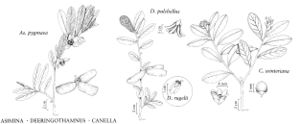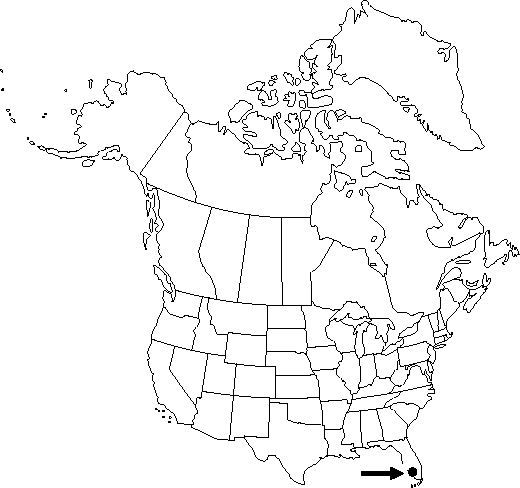Deeringothamnus pulchellus
Bull. Torrey Bot. Club 51: 390. 1924.
Leaves: petiole 2-4 mm. Leaf-blade spreading-ascending, mostly elevated above shoots, oblong to oblong-ovate or spatulate, 4-7 cm, base cuneate to narrowly rounded, margins narrowly revolute, apex obtuse to broadly rounded, often notched. Inflorescences: peduncle slender, 1-3cm. Flowers nodding to ascending, white to pale-pink, sweetly fragrant; sepals 2-4, erect, ovate-triangular, ca. 5 mm; petals 6-12 (-15), ascending to apically recurved, linear or narrowly oblong, 2-3 cm × ca. 2 mm; pistils (1-) 5 (-7). Berries 4-7cm. Seeds 1-1.5 cm, slightly flattened laterally.
Phenology: Flowering late winter–spring, all year on disturbance.
Habitat: Sandy peats of slash pine-palmetto flats, savannas
Elevation: 0-50 m
Discussion
Of conservation concern.
Deeringothamnus pulchellus commonly associates with Asimina reticulata and overlaps with that species in flowering times; no hybrids between them have been observed. When protected from fire, the elongate and branching shoots of D. pulchellus and D. rugelii will persist, but such new growth rarely produces flowers. A conservation measure for such species must involve periodic burning.

